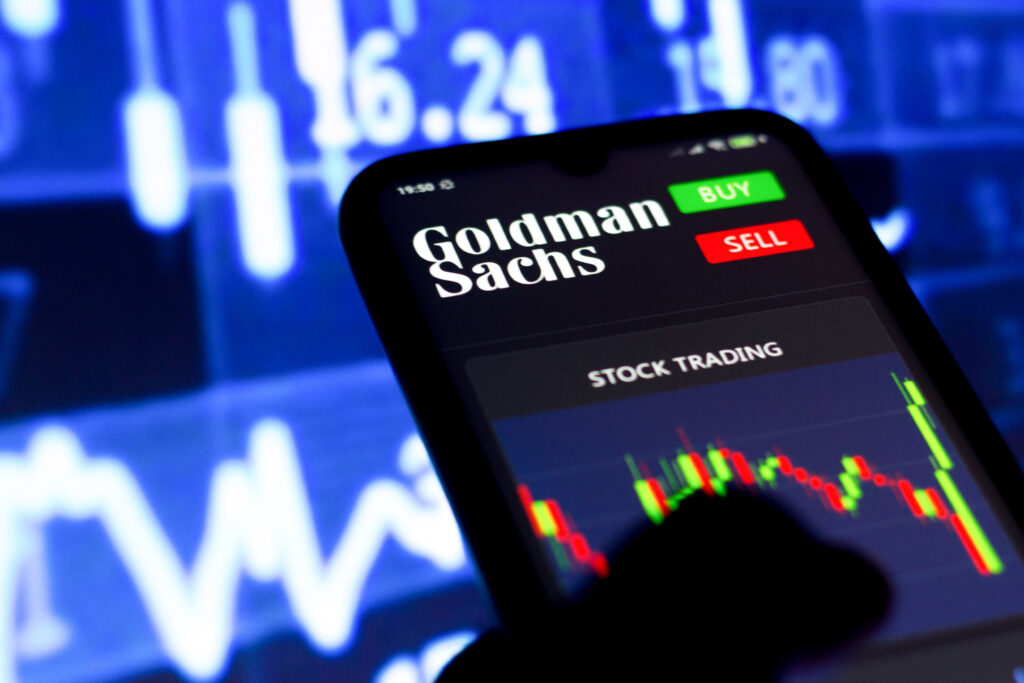
In today’s dynamic financial landscape, Goldman Sachs has been at the forefront of market developments, influencing investor sentiment and shaping the direction of the financial sector. In this article, we will delve into the latest news surrounding Goldman Sachs’ stock performance, the implications of recent earnings reports, regulatory updates, and market forecasts.
Recent Performance of Goldman Sachs Stock
Goldman Sachs Group Inc. (NYSE: GS) has experienced fluctuations in its stock price over the past few weeks, reflecting broader market trends and company-specific developments. As of the latest trading session, Goldman Sachs shares closed at $XX.XX, representing a X% change from the previous trading day. This performance is indicative of the overall volatility that has characterized the financial markets in 2024.
Earnings Reports and Analyst Expectations
Goldman Sachs recently released its quarterly earnings report, which revealed a mixed performance. The investment bank reported earnings of $X per share, missing analyst expectations of $Y per share. This disappointment was primarily driven by lower-than-expected trading revenue and a decline in investment banking fees.
Key Highlights from the Earnings Report:
- Total Revenue: $X billion, a Y% decrease year-over-year.
- Trading Revenue: Down by Z%, reflecting challenging market conditions.
- Investment Banking Fees: Declined due to a slowdown in mergers and acquisitions.
The mixed earnings report has led to a reassessment of Goldman Sachs’ growth prospects among analysts. According to a recent survey by MarketWatch, analysts have adjusted their price targets for Goldman Sachs, with a consensus price target of $XX.XX, suggesting an upside potential of X% from current levels.
Market Reactions and Analyst Ratings
Stock Performance Trends
Following the earnings report, Goldman Sachs’ stock experienced immediate volatility. The stock dropped by approximately X% in after-hours trading, reflecting investor disappointment. However, some analysts remain optimistic, citing the bank’s strong balance sheet and diversified revenue streams as mitigating factors.
Analyst Upgrades and Downgrades
In the wake of the earnings report, several financial institutions have revised their ratings for Goldman Sachs:
- Upgrades:
- JP Morgan upgraded Goldman Sachs to “Buy” from “Hold,” highlighting the potential for recovery in trading revenue.
- Downgrades:
- Morgan Stanley downgraded Goldman Sachs to “Underweight,” citing concerns over regulatory challenges and market competition.
Regulatory Environment Impacting Goldman Sachs
Goldman Sachs operates in a heavily regulated environment, and recent regulatory changes have implications for its operations and stock performance.
Changes in Financial Regulations
The U.S. government has introduced new regulations aimed at increasing transparency and accountability in the banking sector. These changes could impact Goldman Sachs in several ways:
- Increased Capital Requirements: New regulations may require Goldman Sachs to hold more capital, potentially limiting its ability to engage in aggressive trading strategies.
- Enhanced Reporting Standards: Stricter reporting requirements could lead to increased operational costs and affect profitability.
Legal Challenges
Goldman Sachs is also facing legal challenges related to its role in various financial scandals. Ongoing investigations and lawsuits could pose significant risks to the bank’s reputation and financial health. Investors are closely monitoring these developments, as they could impact Goldman Sachs’ stock price in the near future.
Broader Market Context
Economic Indicators Influencing Goldman Sachs
Goldman Sachs’ performance is closely tied to broader economic indicators, including interest rates, inflation, and employment figures. Recent economic data suggests that:
- Interest Rates: The Federal Reserve is expected to maintain its current interest rate policy, which could impact Goldman Sachs’ profitability, particularly in its lending operations.
- Inflation Trends: Rising inflation rates may lead to increased volatility in the financial markets, affecting trading revenues for Goldman Sachs.
Competitive Landscape
Goldman Sachs faces stiff competition from other major investment banks, such as JPMorgan Chase, Bank of America, and Morgan Stanley. The competitive landscape is evolving, with fintech companies entering the market and challenging traditional banking models. Goldman Sachs’ ability to adapt to these changes will be crucial for its future growth.
Investment Strategies and Recommendations
Long-Term Investment Considerations
For long-term investors, Goldman Sachs presents both risks and opportunities. While recent earnings reports have raised concerns, the bank’s strong fundamentals and diversified business model may make it an attractive investment option in the long run.
Key Considerations for Investors:
- Valuation: Assess whether Goldman Sachs is undervalued compared to its peers.
- Dividend Yield: The bank’s dividend yield may provide a stable income stream for investors.
- Growth Potential: Analyze the bank’s growth potential in emerging markets and technology-driven financial services.
Short-Term Trading Strategies
Short-term traders may want to capitalize on the volatility surrounding Goldman Sachs’ stock. Key strategies to consider include:
- Swing Trading: Take advantage of price swings in the stock following earnings reports and market news.
- Options Trading: Consider options strategies to hedge against potential downturns while capitalizing on upward momentum.
Conclusion and Future Outlook
In conclusion, Goldman Sachs remains a key player in the financial sector, facing both challenges and opportunities. While recent earnings reports have raised concerns among investors, the bank’s robust fundamentals and strategic positioning may lead to recovery and growth in the coming months.
Investors should closely monitor regulatory developments, economic indicators, and market trends as they evaluate their positions in Goldman Sachs stock.
Final Thoughts
As the financial landscape continues to evolve, Goldman Sachs will need to adapt to remain competitive. For investors considering exposure to this iconic financial institution, thorough research and a keen understanding of market dynamics will be essential.









Leave a Reply